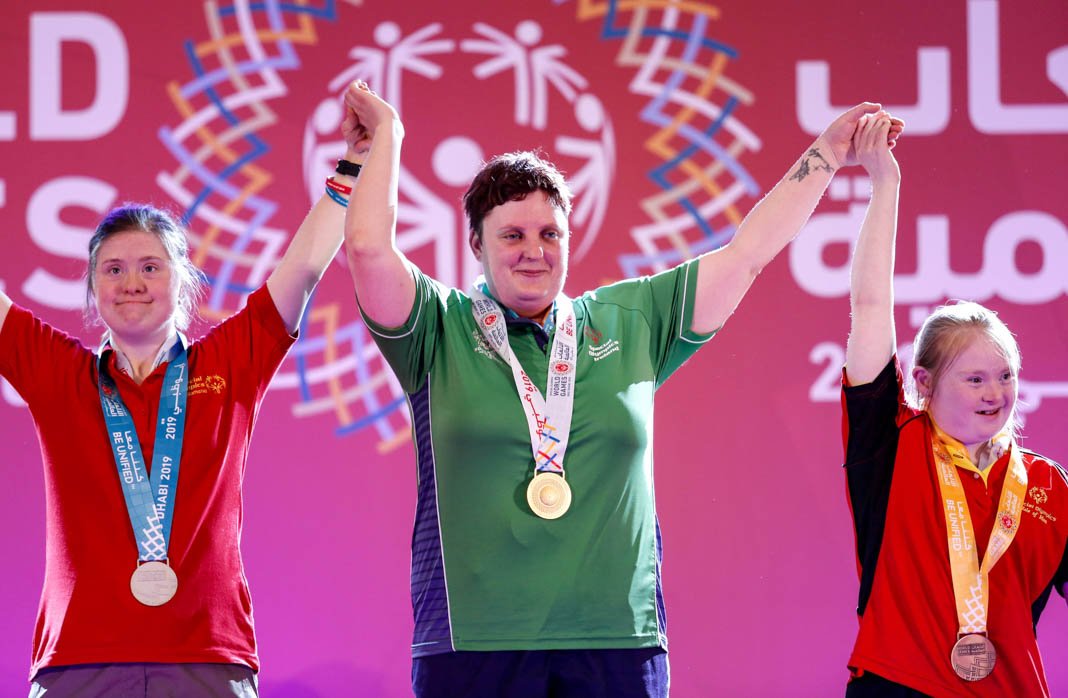Special Olympics: A History
The Special Olympics is the world’s largest organization for athletes with intellectual and developmental disabilities. The event provides training, opportunity and life-changing experiences for children and adults. Every year, 4.4 million athletes with special needs in over 170 countries train in 80,000 sporting events. Every two years, these special athletes advance to compete on the world’s stage.
“Special Olympics World Games – and all of the 80,000 Special Olympics competitions that occur every year – invite the public to see the talents and capabilities of people with intellectual disabilities. It’s a way to open eyes, to change attitudes and to break down barriers that exclude people with ID from the mainstream of community.” Special Olympics

A Trailblazer Takes Action
Eunice Kennedy Shriver saw a need for children with intellectual, developmental and physical disabilities. She recognized there was very little opportunity for this special community to engage in positive physical activity and competition. Driven and inspired by her sister’s disabilities, Eunice took action to create a new future for individuals with disabilities. In 1962, Eunice founded Camp Shriver, a day camp at her home in Potomac, Maryland. Rather than dwelling on what each athlete could not do, Eunice focused on what each athlete was capable of. She encouraged, fostered confidence and challenged each competitor to achieve a personal best.
Eunice became a pioneer and advocate for intellectual and developmental disabilities, standing as the director of the Joseph P. Kennedy Jr. Foundation. She worked closely with physicians, special education leaders, and public leaders to fund grants and events to grow her vision. With the support of the President, in 1969, the first Special Olympics Games were held in Chicago, Illinois.
The World Recognizes Special Athletes
At the first Special Olympic Games, Eunice announced that they'd be the “Biennial International Special Olympics.” And, in 1971, the U.S. Olympic Committee honored the event by approving the use of the “Olympics” name. In 1988, it was recognized by the International Olympic Committee.
Eunice Kennedy Shriver set out with a vision to give children with intellectual and developmental disabilities a voice. Her many years of advocacy for this special community has turned her vision into an internationally recognized pursuit. As a result, she set the stage for defining people with disabilities by their strength and abilities rather than their diagnosis.
This summer, the 14th Special Olympic World Games will be held in Los Angeles, California. They will host 7,000 athletes with disabilities and over 30,000 volunteers from 170 countries. Athletes will compete in twenty-five Olympic sporting events, demonstrating courage, strength and unstoppable determination.
“Eunice Kennedy Shriver will be remembered…as an extraordinary woman who, as much as anyone, taught our nation – and our world – that no physical or mental barrier can restrain the power of the human spirit.” President Barack Obama

